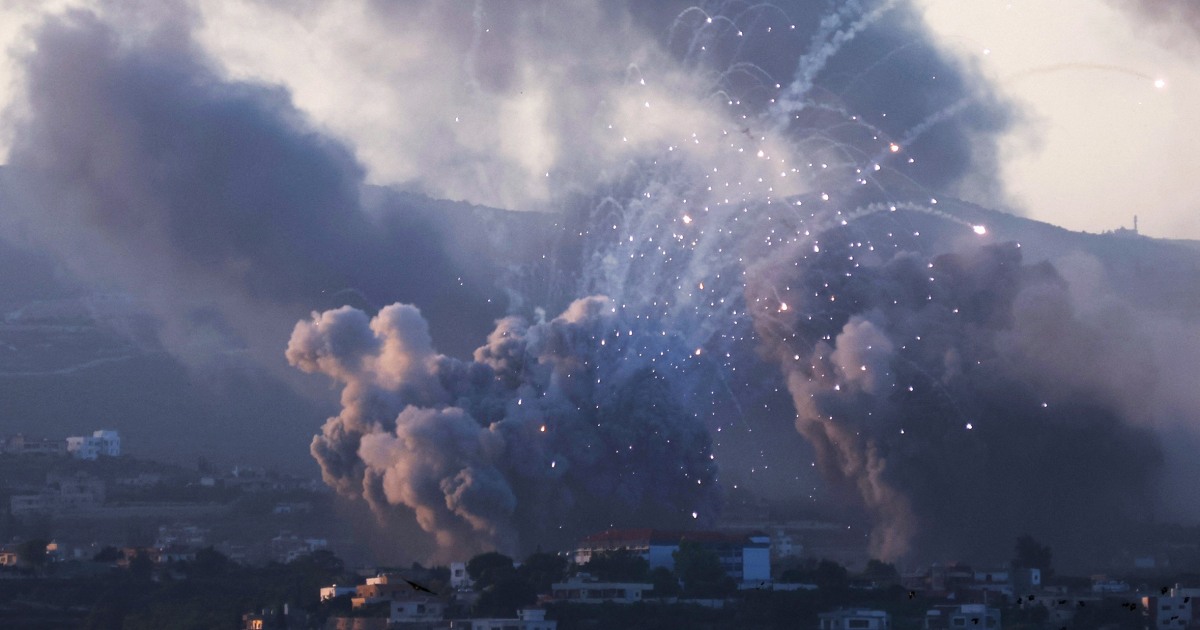
TEL AVIV — Israel dramatically expanded its aerial assaults on Lebanon with airstrikes Monday that killed nearly 500 people, wounded over 1,600 more and appeared to signal the start of a broader military campaign.
Israeli officials said their forces struck 1,300 “terrorist targets” inside Lebanon that were linked to Hezbollah, the militant group that has been trading rocket fire with Israel for nearly a year.
It was not only the highest death toll this year on this front; it was also the deadliest day of conflict with Israel since the 34-day war between the two countries in 2006.
“These numbers also refer to many terrorists we killed today who were near the weapons,” Israel Defense Forces spokesperson Daniel Hagari said when he was asked about the high death toll.
Hezbollah has been hiding weapons in private homes, Hagari said, including “cruise missiles that can reach hundreds of kilometers, heavy rockets with a 1,000-kilogram warhead, medium-range rockets that reach a range of up to 200 kilometers, short-range rockets and armed unmanned aerial vehicles.”
Hagari said Israeli attacks would not let up any time soon.
“Challenging days are ahead,” he said. “We continue to be focused on defense and attack on all fronts.”
Earlier, the IDF said it was expanding the “extensive, precise strikes against terror targets” in the Bekaa Valley along Lebanon’s eastern border and warned civilians to move away from Hezbollah positions.
“Whoever tries to hurt us, we hurt him even more,” Israeli Prime Minister Benjamin Netanyahu said at the military’s headquarters in Tel Aviv, adding that Israelis face “complex days.”
“I promised that we would change the security balance, the balance of power in the north,” he said. “This is exactly what we are doing. “
Shortly after Hagari spoke, the Lebanese Health Ministry announced that 492 people, including 25 children and 58 women, were killed in the Israeli attacks. It said 1,650 were injured.
Israel and Iran-backed Hezbollah have been bombarding each other since the Oct. 7 terrorist attack by Hamas sparked Israel’s invasion of Gaza. Many experts agree neither Israel nor Iran wants a full-blown direct conflict, but they fear escalating strikes may lead to one.






